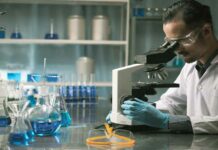A group of type 1 antibodies recently made available by Bio-Rad Laboratories are intended to prevent the drug evolcumab from attaching to its target, human proprotein convertase subtilisin/kexin type 9. (PCSK9). These recombinant, sequence-defined antibodies are meant to create evolcumab and its biosimilars-specific pharmacokinetic (PK) and anti-drug antibody (ADA) assays that are both extremely sensitive and selective.
A monoclonal antibody (mAb) called evolocumab has been used to treat hyperlipidemia, or high cholesterol levels and other lipoproteins. It attaches to PCSK9, which has been demonstrated to be critical for regulating cholesterol levels, based on a news statement from the company dated August 25, 2022. It aims to lower blood cholesterol and other lipoproteins by blocking the interaction between PCSK9 and low-density lipoprotein receptors.
These five anti-evolocumab antibodies come in a variety of forms, including fully human immunoglobulin G1 replicas and recombinant combinatorial antibody library information antibodies with SpyTag, a technology for irreversible conjugation of recombinant proteins, technology integrated into their heavy chains. This is designed to allow site-directed complexation or fast-switching to a bivalent Fab or a full-length Ig-like layout within an hour. The antibodies can also be employed as a substitute for a positive control or as a reference standard in an ADA test or to create PK-bridging enzyme-linked immunoassays to quantify free drug.
According to the press release, Hilary Latham, marketing director, Life Science Group, Bio-Rad, Bio-range Rad’s of ready-made and well-characterized anti-idiotypic antibodies keeps expanding, providing researchers augmented flexibility for the advancement of custom bioanalytical drug assays vs a wide range of marketed biologic drugs. These antibodies, which were produced under strict quality assurance for batch-to-batch consistency, can yield results that are replicable and translateable, ensuring the accuracy of the assay.




















